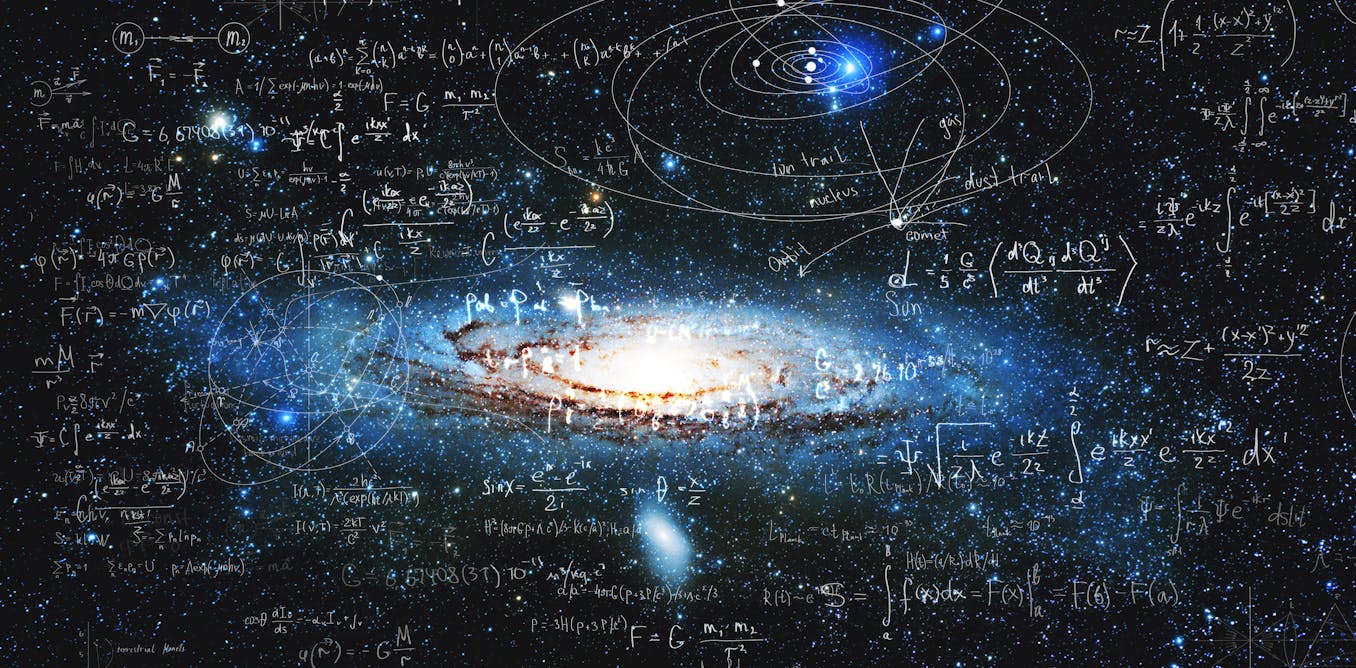Almost 400 years ago, in The ExaminerGalileo wrote: “Philosophy is written in this great book, the universe… [But the book] is written in the language of mathematics.” He was much more than an astronomer, and this can almost be considered the first writing on the scientific method.
We don’t know who first started using mathematics for scientific study, but it is plausible that it was the Babylonians who used it to discover the pattern underlying solar eclipses nearly 3,000 years ago. But it took 2,500 years and the invention of calculus and Newtonian physics to explain the patterns.
Since then, probably every great scientific discovery has used mathematics in some form, simply because it is far more powerful than any other human language. Not surprisingly, this has led many people to claim that mathematics is much more: that the universe was created by a mathematician.
So can we imagine a universe where math doesn’t work?
The language of mathematics
The Sapir-Whorf hypothesis states that you cannot discuss a concept unless you have the language to describe it.
In any science, and especially in physics, we have to describe concepts that don’t translate well to human language. You can describe an electron, but the moment we start asking questions like “What color is it?” we begin to see the shortcomings of English.
The color of an object depends on the wavelengths of light it reflects, so an electron has no color, or more accurately, all colors. The question itself is pointless. But ask, “How does an electron behave?” and the answer is, in principle, simple. In 1928, Paul AM Dirac wrote down an equation that almost perfectly describes the behavior of an electron under all circumstances. This doesn’t mean it’s easy if we look at the details.
For example, an electron behaves like a tiny magnet. The magnitude can be calculated, but the calculation is horrifically complicated. For example, to explain an aurora, we need to understand orbital mechanics, magnetic fields, and atomic physics, but it’s really just more math.
But when we think of the individual, we realize that the human obligation to think logically, mathematically, goes much deeper. The decision to overtake a slow-moving car does not involve explicitly integrating the equations of motion, but we certainly do it implicitly. A Tesla on autopilot will actually solve them explicitly.
(Shutterstock)
predict mayhem
So we really shouldn’t be surprised that mathematics is not just one language for describing the outside world, but in many ways the only one. But just because something can be described mathematically doesn’t mean it can be predicted.
One of the most remarkable discoveries of the last 50 years has been the discovery of “chaotic systems”. These can be seemingly simple mathematical systems that cannot be precisely solved. It turns out that many systems are messy in that sense. Hurricane trails in the Caribbean superficially resemble solar eclipse trails, but we can’t accurately predict them with all the power of modern computers.
However, we understand why: the equations that describe weather are inherently chaotic, allowing us to make accurate forecasts in the short term (roughly 24 hours), but these become increasingly unreliable as the days go by. Similarly, quantum mechanics provides a theory where we know exactly which predictions cannot be made accurately. One can calculate the properties of an electron very precisely, but we cannot predict what a single one will do.
Obviously, hurricanes are intermittent events and we cannot predict in advance when one will occur. But just because we can’t accurately predict an event doesn’t mean we can’t describe it when it happens. We can even handle one-off events: it’s widely accepted that the universe came into being in the Big Bang, and we have a remarkably accurate theory about it.
design of social systems
A whole host of social phenomena, from the stock market to revolutions, lack good predictive mathematics, but we can describe what happened and, to some extent, construct model systems.
So what about personal relationships? Love may be blind, but relationships are certainly predictable. The vast majority of us choose mates within our social class and language group, so there is absolutely no doubt in a statistical sense. But it also applies in a local sense. A lot of dating sites make their money off algorithms that at least appear to match you with your ideal partner.
A universe that cannot be described mathematically would have to be fundamentally irrational and not just unpredictable. Just because a theory isn’t plausible doesn’t mean we can’t describe it mathematically.
But I don’t think that’s the universe we live in, and I suspect we can’t imagine a non-mathematical universe.

